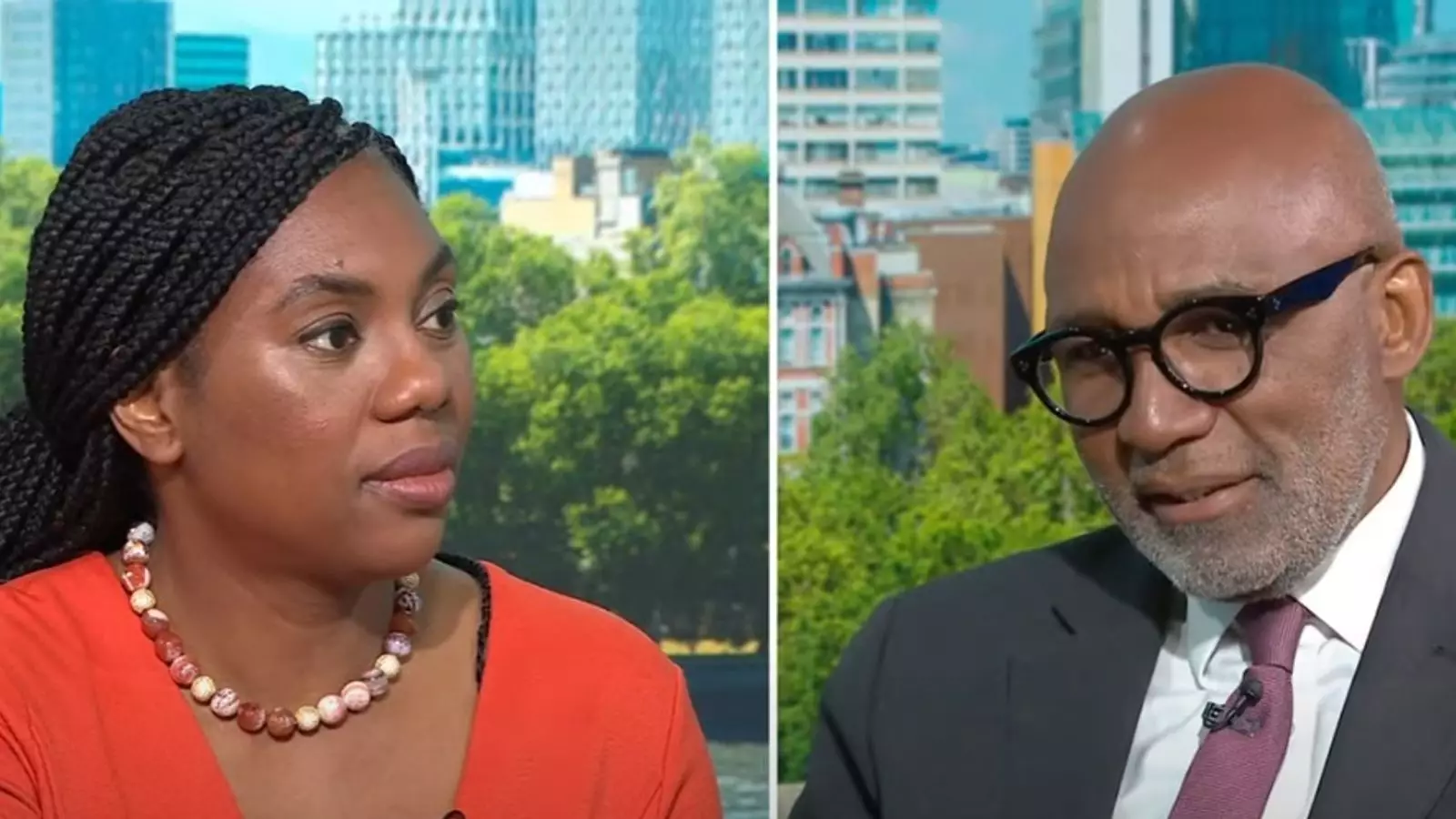Kemi Badenoch, the current leader of the Conservative Party, finds herself navigating a precarious political landscape that demands strategic prowess and a dash of audacity. With local elections on the horizon, her recent comments about potential coalitions with the Reform Party have sparked considerable debate. On one hand, Badenoch’s outright refusal to form any national alliance with Nigel Farage’s party exhibits a bold stance, yet it also reflects her understanding of the turbulent waters she must traverse. Her words, “I am not going into any coalition with Nigel Farage… read my lips,” serve both as a declaration of independence and as a warning about the complexities of coalition politics in a fracturing political climate.
One cannot ignore the implications of the approaching local elections, where 23 councils, predominantly once held by Conservatives, hang in the balance. Badenoch’s acknowledgment that these electoral battles come at a time when the party’s standing is less than favorable, even suggesting they could lose all their contested councils, adds a layer of urgency to her statements. Her reluctance to dismiss local coalitions outright, while maintaining a hard line against Farage’s movement, illustrates a political paradox—necessary pragmatism against a backdrop of ideological purity.
The Reality of Local Governance: Coalitions as a Means of Survival
At the heart of Badenoch’s reasoning lies a stark truth about local governance: coalitions are often not merely options, but necessities. In areas where councils are fragmented and dominated by independent or other minority parties, the Conservative Party may have to partner with Reform as a pragmatic response to ensure they can exert some level of influence. This recognition of local needs over national loyalties raises questions about the essence of party identity and ideological coherence in desperate times.
Badenoch’s reflection that the Conservatives have previously formed coalitions with Liberal Democrats and even Labour politicians highlights the shifting allegiances inherent in local politics. The challenge remains—how could a coalition with Reform be navigated without alienating a voter base that rejects Farage? The dilemma suggests that Badenoch understands the reality of governance; her priority appears focused on ensuring that local communities receive effective representation, even if it involves uncomfortable partnerships.
The Tensions Within the Right-Wing Sphere
Badenoch’s scenario is complicated further by internal tensions within the Conservative Party regarding potential deals with Reform. A recent private recording of Robert Jenrick, the shadow justice secretary, indicating a desire for collaboration between the two parties has not only caused ripples within the Tory camp but has also fed into speculations that the party faces an identity crisis. When influential members advocate for a coalition with Reform, it raises alarming questions: Is the Conservative Party struggling to define its core principles? How far can they bend before losing touch with their original voter base?
The opposition is buzzing with speculation while Badenoch projects confidence aimed primarily at local concerns. However, as counterpoints emerge from the Labour Party suggesting they will not engage in coalition politics either, one must wonder if the political landscape is gearing up for an era where parties, rather than clashing singularly, will be compelled to find common ground for survival. In essence, the turbulence of the right-wing populace is a mirror reflecting broader British political discontent—the declining trust in parties and their ability to deliver on promises.
Cloaked Reality: The Voters’ Perspective
As Kemi Badenoch bobs and weaves through the political labyrinth of coalition talks, the voter experience remains paramount. The electorate’s sentiment towards potential coalition arrangements often oscillates between skepticism and resignation. The visible struggle within Conservative ranks may embolden voters and push them towards alternative parties, as the sense of idealism is fracturing under the weight of pragmatic alliances.
If voters perceive coalition negotiations as mere “stitch-ups,” as Badenoch herself cautioned against, they may lose faith not only in the Conservative Party but in the broader political framework as well. Voter disillusionment is a dangerous undercurrent in democratic societies; it fosters apathy and disengagement, which could very well alter the electoral landscape for future elections.
Thus, the question remains: Are coalitions a sound tactic for survival or a slipknot compromising long-held beliefs? As Kemi Badenoch walks this thin line, she must consider how every decision reverberates across the electorate. The pressing need to adapt to local realities cannot eclipse the foundational principles that initially united her party. The pathway ahead is fraught with dilemma and uncertainty, for the future of British politics is unclear, and change may become both a reality and a necessity.

